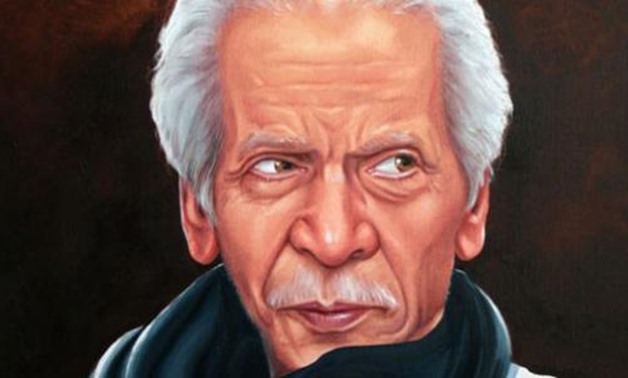
Late Egyptian Colloquial poet Ahmad Negm better known as Fagoumy - Youtube
CAIRO – 21 November 2018: The American University in Cairo is set to announce the winner of Ahmad Fouad Negm Award for Egyptian Colloquial Poetry on Monday, Dec. 3 at 6:30 p.m.
It is worth noting that Ahmed Fouad Negm Award for Colloquial Poetry was launched in 2014. The award’s board of trustees include: former Minister of Culture Imad Abu Ghazi, poet Ibrahim Daoud, Mohammed al-A'dl, director Magdy Ahmed Ali and engineer Naguib Sawiris.
The prize is awarded to living poets and is given to the poet personally and not to the publisher.
Applicants for the award shall not exceed the age of 40. The poet may not submit the same work again at a subsequent session.
The participants in the poetry division shall submit six different poetical copies. The contest accepts nominated individual candidates, candidates of publishers and cultural institutions, or candidates of universities and scientific institutions, after providing a written declaration from the poet to participate in the contest and accept the prize if he/she wins.
The short poetry award must consist of 10 collections of poems. The short poetry prize is LE 10,000. The winner of the grand award will be chosen from the short list, winning a prize of LE 50,000.
Ahmed Fouad Negm, Egyptian dissident poet (born May 22, 1929, Kafr Abu Negm, Egypt - died Dec. 3, 2013, Cairo, Egypt), inspired generations of Egyptians with his slangy, sometimes crude poems in which he described the struggles of the working class and lampooned the excesses of Egypt’s political leaders.
Negm’s verse, written in colloquial Arabic, became a rallying cry for many protesters, and in 2011 young Egyptians chanted lines from his poem “Who Are They?", and "Who Are We?” during public demonstrations in Cairo against Pres. Hosni Mubarak's regime.
Negm’s disdain for authority put him in constant conflict with the government, however, and during his life he spent a total of 18 years in jail. Negm had little formal education and worked as a laborer on a military base and then as a street vendor until he was imprisoned (1959) for the first time for fraud.
He began to write in prison, composing the poems that were later collected as Suwar min al-hayah wa al-sijn (1962; “Pictures from Life and Prison”). He collaborated for some two decades with singer-composer Sheikh Imam, who set Negm’s work to music. Negm in 2007 was named a UN “ambassador of the poor.”

Comments
Leave a Comment